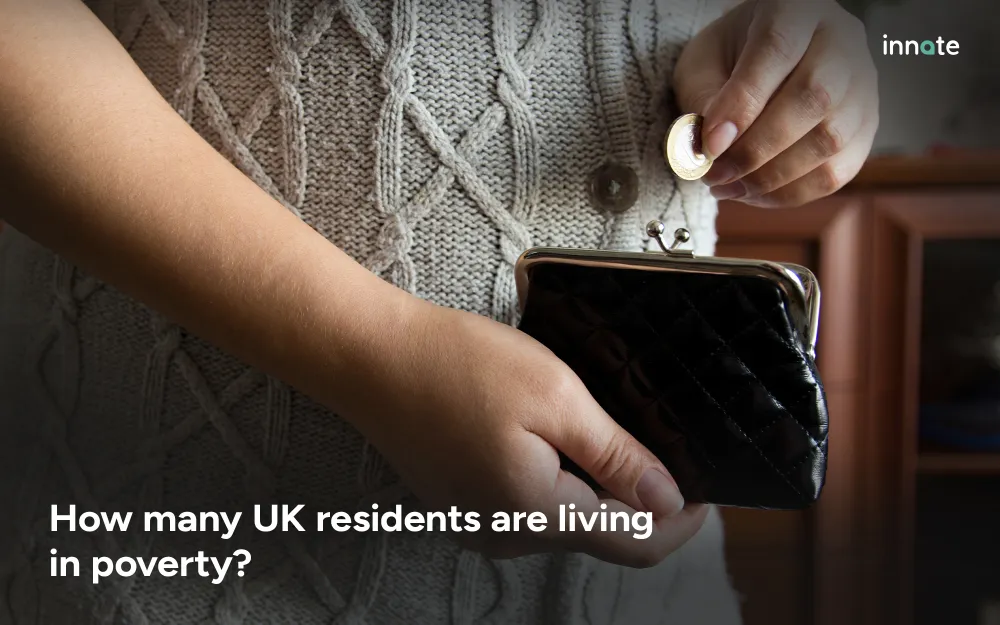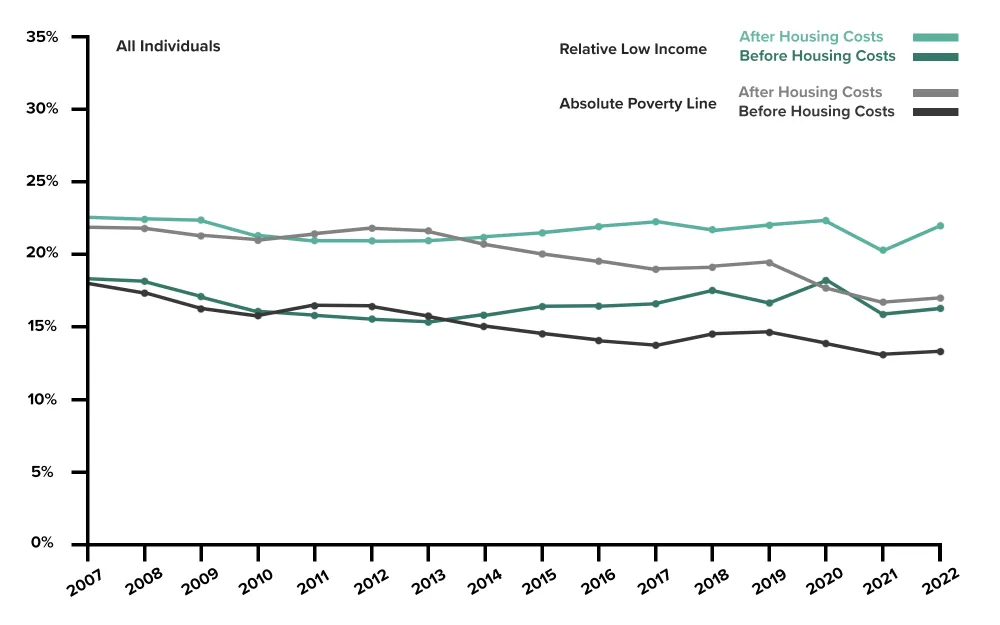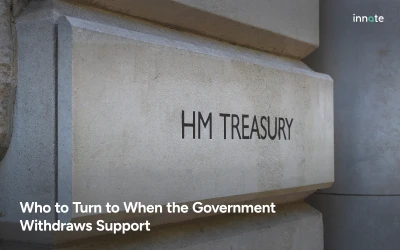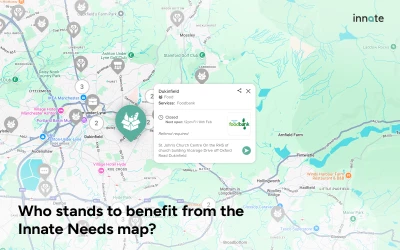
That there are too many destitute people should go without saying. One person living in poverty should be too many. But putting precise numbers to how many people are struggling financially is not easy.
The government presents two (perfectly valid but often confusingly wielded) official ways of calculating the number of people in poverty.
Figures for Absolute Poverty are derived by calculating all people whose income falls below a selected value that does not change (other than being adjusted for inflation).
Relative Poverty is the total of people whose income falls below 60% of median income for any given year.
Median income is not a static figure - so it is perfectly possible for the curve on a graph showing the numbers of people in Absolute Poverty to be rising while the numbers of people in Relative Poverty are falling.

Both sets of figures can also be adjusted to remove housing costs. Or narrowed by region or demographic. So a cynical politician (see below) can take his pick of statistics that suit his argument.
Without gaining a penny more in income, people will be counted out of Relative Poverty because overall pay packets are shrinking or not keeping pace with inflation, meaning median income is a lower base from which to calculate the poverty line. That doesn’t mean the very poorest have more money to afford heating or food, it just means everyone has less. However honest discussions of statistical choices (such as this debate from the House of Lords) don’t get the widespread coverage of, say, a snappy exchange on PMQs during which precisely nobody called out Keir Starmer on using Absolute Poverty statistics when defending Labour’s record in government and Relative Poverty statistics when attacking the SNP’s record in Scotland.
The food bank charity Trussell (formerly the Trussell Trust) is attempting to break through this grind with a new statistical measure of poverty based on the numbers who currently access their network of food banks and those who potentially could benefit from help, but aren’t receiving it. They estimate that 9.3 million people in the UK face hunger and hardship.
It’s not just food that these destitute people require. We founded Innate Needs to help the very poorest in society access the help that is out there. Once you start talking to the people providing and accessing support, you start to get a sense of the scale of the problem, and appreciate the small miracles that selfless people enact every day. 9.3 million is a lot of mouths to feed. And these people are going to have other needs that must be met too.
We’ve begun mapping out support available in these categories:
- Advice
- Clothing
- Employment
- Food
- Healthcare
- Shelter
- Social Interaction
- Warmth
- Miscellaneous/Other
We hope that by providing a UK wide map of support organisations, we can help some of the potentially 9.3 million people find the help they need to prevent them falling further into destitution.
Trussell’s full report on the Cost of Hunger and Hardship can be read online.


